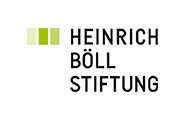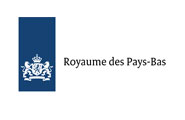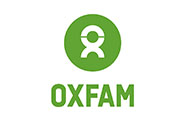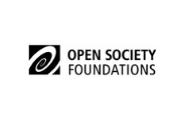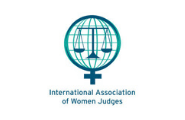TO THE AFRICAN UNION ON THE OCCASION OF THE SIXTH AFRICAN ANTI-CORRUPTION DAY
Transparency International’s open letter
11 July 2022
To African Union Leaders,
On the occasion of this sixth African Anti-Corruption Day, Transparency International through its 28 National Chapters across all of Africa’s Regional Economic Communities,
- Noting that the COVID-19 pandemic has greatly disrupted the livelihoods of African citizens and demanded additional resources be deployed by governments, and that while more resources are needed to address the impact of the pandemic, there is need to manage the available resources with greater transparency and accountability;
- Recognising that Africa is the region most affected by illicit financial outflows, and addressing that this challenge would substantially increase resources for the continent to meet its development needs;
- Concerned that there is still an urgent need to address corruption in the delivery of basic services, which mostly affects the most vulnerable and marginalised citizens who greatly depend on these public services;
- Observing the urgent need for national-level follow-up and implementation of Africa’s commitments on anti-corruption and democratic governance;
take the opportunity to again:
- Applaud the African Union (AU) for earmarking and marking 11 July as African Anti-Corruption Day and especially welcome this year’s theme: “Strategies and Mechanisms for the Transparent Management of COVID-19 Funds”. The pandemic has greatly disrupted the livelihoods of African citizens, impeded the movement of people, and exposed inequalities in access to essential goods and services including healthcare and food.
- Commend the 3 Member States of the AU that have recently ratified the African Union Convention on Preventing and Combatting Corruption (AUCPCC) joining the 44 Member States that had already ratified it, and call upon the remaining 8 Member States to take measures to ratify, domesticate, implement and develop clear action plans for this important Convention at the earliest opportunity. The AUCPCC provides a bold and robust roadmap for the implementation of anti-corruption efforts and reinforces the commitments made by Member States of the AU to uphold democracy, human rights and the rule of law, as well as the underlying values of transparency, integrity, participation and accountability.
- Further commend the 36 Member States of the AU that have ratified the African Charter on Democracy, Elections and Governance, and urge the remaining 19 Member States to take swift measures to ratify this important African treaty.
- Note with great concern that corruption is and remains a significant threat to democracy and democratic institutions, and poses a significant hindrance to African States in realising Agenda 2063 and the Sustainable Development Goals.
- Further note that the impact of corruption on the management of the COVID-19 pandemic, including the necessary resources, vaccines and personnel, is visible and cannot be ignored given its effect on the most vulnerable, poor and marginalised people.
- Recognise the commendable leadership and coordination of African institutions like the Africa Centres for Disease Control (CDC) in rallying regional resources for the continent to address COVID-19 and forestall a potentially disastrous outcome from this and other humanitarian crises.
- Further join with the AU in calling for reforms to the global financial architecture and thereby recognise the establishment of the Sub-Committee on Tax and Illicit Financial Flows in a bid to strengthen resource mobilisation and to curb losses and wastages on the continent, as well as reduce the dependence on external predatory loans that have increased the debt burden across the continent.
- Call on the AU to accelerate the completion, roll-out and implementation of the Tax and Illicit Financial Flows Strategy. The strategy that is being developed will effectively position the continent to instigate global reforms on an inclusive tax treaty and increase the resources available in a post-pandemic era.
- Further call on AU Member States to strengthen “know your customer” rules to ensure that enablers of corruption and illicit financial flows, including professional enablers such as bankers, lawyers and accountants, are held accountable for actions that facilitate the loss of resources.
- Remind African leaders of our 2016 call on governments to disclose beneficial ownership information as a way of ending the secrecy that enables corruption, and our 2018 call on governments to:
- Publish timelines for establishing public registers, in open data format, containing beneficial ownership information;
- Require foreign companies operating in Africa to register and disclose their beneficial owners;
- Require bidders for public contracts to undergo due diligence procedures to verify the background of the company and its senior officers, majority shareholders and ultimate beneficial owners, as well as disclose the identity of beneficial owners;
- Require high-risk sectors, such as the real estate industry, to have anti-money laundering programme requirements, including customer due diligence and adequate record keeping; and
- Ensure there are appropriate sanctions proportionate to the misconduct involved for those found guilty of breaching these and related laws.
- Enjoin African states to address corruption in the delivery of basic services especially housing, water, sanitation, education, health, humanitarian responses and judicial systems. Corruption in basic service delivery tends to mostly affect the poorest of citizens who depend on these public services, and particularly disadvantages persons living with disabilities, women and children. Similarly, corruption in land management systems exacerbates inequalities by violating the fundamental rights of local communities, particularly vulnerable groups. We urgently remind African leaders of our 2018 call to the AU to:
- Promote transparency and accountability in the delivery of basic services, land administration systems and justice systems and end impunity for those convicted of corrupt practices; and
- Create mechanisms to collect citizens’ complaints and strengthen whistleblower protection, notably through the adoption of appropriate legislation in accordance with international standards.
- Urge State Parties to the AUCPCC to take swift action to report their progress on the implementation of the AUCPCC as required by Article 22(7) of the Convention, with the full participation of civil society in an enabling environment as required by Article 12 of the AUCPCC. We appreciate the efforts of the very few States that have so far reported.
- Hereby jointly with other partners reaffirm our commitment to work with the AU through the distinguished African Union Advisory Board against Corruption, the African Governance Architecture and other Organs related thereto, and most especially work with the anti-corruption agencies in our various Member States to eliminate corruption from the daily lives of African citizens.
- Convey the assurances of our highest consideration.


